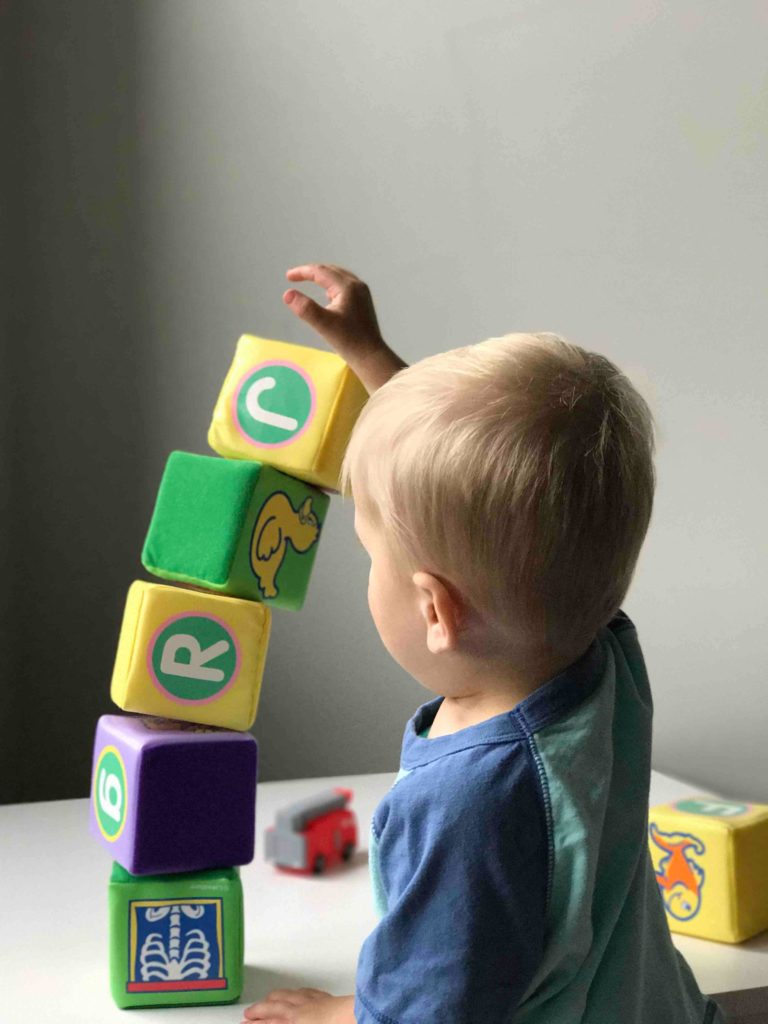
How Do I Know If My Child Needs Speech Therapy Age 2
Concerned about your child’s development? Try our quiz created to help you gauge if your child could benefit from occupational or speech therapy. This checklist is not to replace an evaluation by a
When you smile at your child, does he or she smile back at you?
2. Did your child produce single words by 16 months or two-word phrases by age 2. [For example “mik “ (milk) or “ Mo Mik” (More milk)]
Yes No
3. Did your child babble ? (For example: “bababamadadapapa”)
Yes No
4. Does your child engage with you during play (ex: looking at adult/caregiver during peek-a-boo, fingerplays, etc)?
Yes No
5. Feeding: Does/did your child have difficulty breast-feeding or bottle feeding (ex: choking, coughing, reflux, etc)?
Yes No
6. Feeding: Is your child particular about certain textures, tastes, or flavors, such as avoiding certain foods?
Yes No
7. Does your child respond to his or her name?
Yes No
This is an informative survey and not standardized. If you answered “yes” to any of these questions or if you have concerns, you should bring your child to a health care provider and early intervention provider for full assessment. For resources in your area, see our website’s list of resources in Tucson. You can also call, email or set-up a 1-on-1 consultation with a Jenny’sspeech.

How Do I Know If My Child Needs Speech Therapy Age 3 to 5
1. Do you or other family members frequently have a hard time understanding your child’s speech? (Ex: family members frequently ask you, “What did she/he say?”)
Yes No
- Do strangers or other unfamiliar people have a hard time understanding your child’s speech? (Ex: strangers frequently ask you, “What did she/he say?”
2. Does your child play pretend or make-believe?
(Ex: pretend to feed a doll or stuffed animal?)
3. Does your child show you things by bringing them to you or holding them up for you to see — not to get help, but just to share?
(Ex: showing you a leaf, a stuffed animal, or a toy )
Yes No
4 Does your child understand simple directions?
(Ex: Without pointing, can your child understand “put the cup on the table” or “Bring me your shoes”?)
Yes No
5. Does your child play with toys appropriately (such as pushing a car, hugging a doll, stacking blocks)
Yes No
6. Does your child limit their diet to less than 15 foods?
Yes No
7. Willa car only
Yes No
8. Is your child interested in other children?
(Ex: Does your child watch other children, smile at them, or go to them?)
Yes No
This is an informative survey and not standardized. If you answered “yes” to any of these questions or if you have concerns, you should bring your child to a health care provider and early intervention provider for full assessment. For resources in your area, see our website’s list of resources in Tucson. You can also call, email or set-up a 1-on-1 consultation with a Jenny’sspeech.

How Do I Know If My Child Needs Speech Therapy Age 6 to 8
1. Does your child stutter?
2. Is your child interested in other children?
(Ex: Does your child watch other children, smile at them, or go to them?)
3. Does your child try to get your attention?
(Ex: Child looks at you for praise, or say “look”, or “watch me”?)
Yes No
4. Does your child mispronounce words or sounds?
Yes No
5. Can your child answer “wh” type questions correctly (who, what, where, when, why)?
Yes No
6. Does your child tell you about their day?
7
8. Can your child describe a sequence of events (Ex: First, next
Yes No
This is an informative survey and not standardized. If you answered “yes” to any of these questions or if you have concerns, you should bring your child to a health care provider and early intervention provider for full assessment. For resources in your area, see our website’s list of resources in Tucson. You can also call, email or set-up a 1-on-1 consultation with a Jenny’sspeech.

How Do I Know If My Child Needs Speech Therapy Age 9 to 18
1. Does your child have periods when they stutter? (Ex: 6 months of dysfluency)
2. Does your child have friends and can maintain those friendships?
3. Does your child understand that “white lies” are important to save other’s feelings sometimes? (Ex: Accepting a gift, even though they don’t like it, or keepingnegative comments about others to self)
4. Does your child have difficulty focusing at school?
5. Does your child follow the “rules” of conversation (Ex: takes turns as listener and speaker, provides information relevant to the conversation, etc)
6. Does your child have a hard time communicating their thoughts to you? (Ex: forming complex sentences, retelling an incident, describing things or events)
7. Does your child have trouble understanding complex directions or long stories?
This is an informative survey and not standardized. If you answered “yes” to any of these questions or if you have concerns, you should bring your child to a health care provider and early intervention provider for full assessment. For resources in your area, see our website’s list of resources in Tucson. You can also call, email or set-up a 1-on-1 consultation with a Jenny’sspeech.

Recent Comments